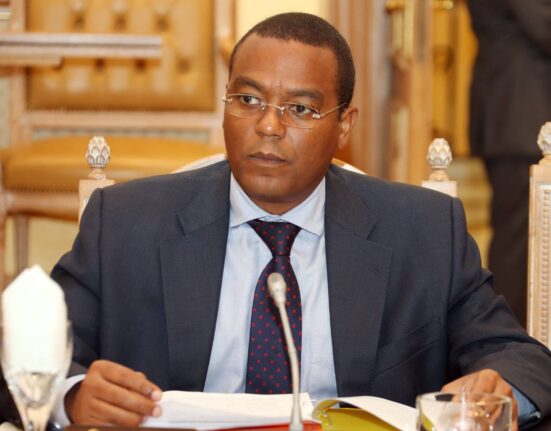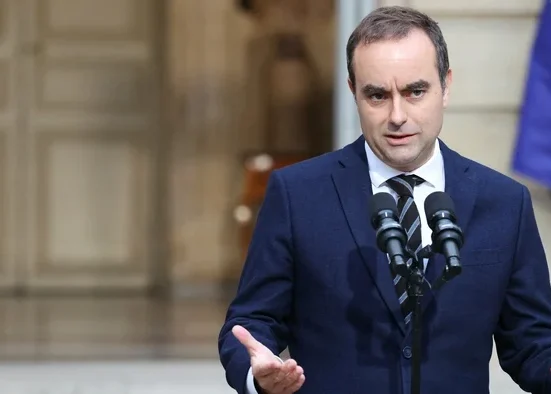CBN governor defends FX liberalisation and bank recapitalisation at LBS, but markets still assign credibility discount
Nigeria’s central bank governor, Olayemi Cardoso, set out his most comprehensive case to date for the country’s monetary overhaul during a policy dialogue at London Business School, signalling that Abuja has little intention of retreating from its reform agenda despite elevated political costs and lingering investor scepticism.

AfricaHeadline Reports Team
editorial@africaheadline.com
Speaking to an audience of global asset managers, policy economists and African market specialists, Cardoso said Nigeria had shifted away from “years of policy distortion and fiscal laxity” towards a rules-based framework anchored on orthodox monetary policy, market-determined FX pricing and strengthened financial-sector supervision. The session, moderated by Professor Ellen Ryan, included contributions from multilaterals, corporate executives and LBS faculty.
“We inherited a broken system,” Cardoso said, citing the collapse of the FX regime, widening deficits and “a profound erosion of institutional trust”. The priority of the past 18 months, he added, had been to rebuild credibility, “even when reforms impose short-term pain”.
Three policy pivots continue to shape foreign investor positioning.
The unification of multiple FX windows and adoption of a willing-buyer, willing-seller mechanism have sharply reduced arbitrage and narrowed the parallel-market spread, previously a key driver of capital mis-pricing and policy distortion. The naira’s sharp adjustment has since stabilised, improving FX price discovery and transaction transparency. Flows linked to diaspora remittances and education-related FX are increasingly routed through formal channels, curbing crypto-based circumvention.
Headline inflation, which peaked above 37 per cent, has eased to around 20 per cent. The CBN is targeting a return to single digits over the medium term. Cardoso cautioned that sustained disinflation requires “discipline, not applause-seeking policy U-turns”. Tighter liquidity conditions have contained excess money supply and dampened speculative positioning in local markets.
A sector-wide bank recapitalisation has been launched to rebuild capital adequacy in the context of a weaker currency and to expand system-wide lending capacity. Unlike previous cycles, the CBN is allowing licensing flexibility rather than mandating mergers. Cardoso said early signs of renewed offshore engagement were emerging, with some international banks “re-evaluating their Nigeria strategy”.
While attendees broadly welcomed the re-anchoring of policy, asset managers warned that reform durability remained unproven, particularly as Nigeria approaches an electoral cycle.
Key risks flagged by investors included social pushback to subsidy withdrawals amid rising living costs; policy slippage or reversal linked to election pressures; the pace and resilience of FX normalisation, which some see as vulnerable to terms-of-trade shocks; and regulatory ambiguity around digital-asset and fintech frameworks.
Market participants noted that although FX transparency has improved, confidence has not yet reset. Several investors said they required “a minimum of six more quarters of consistency” before reducing Nigeria’s risk premium.
Cardoso acknowledged macro headwinds beyond monetary policy, including climate-related food supply shocks, structural inequality and fiscal leakages. He framed monetary stability as a prerequisite for inclusive growth, stating that “central banks cannot print prosperity”.
On innovation, the CBN is rolling out AI-driven supervisory systems and preparing a calibrated regulatory approach to digital assets to avoid “innovation flight” while protecting consumers.
A substantive thread of the discussion centred on regulatory and legal architecture. FX unification reduces grey-zone legal exposure around currency controls but will require stronger AML enforcement to deter illicit FX trading. Bank recap measures could trigger litigation risk in contested consolidation scenarios, necessitating clearer regulatory and judicial guidance. The independence of the CBN through electoral cycles was identified as the critical institutional stress-test for reform continuity.
Cardoso’s message in London was that Nigeria has returned to fundamentals. Lower inflation, improved FX pricing signals and rising bank capital position the economy more favourably than two years ago. But the credibility premiumdemanded by investors is unlikely to narrow without proof of policy durability and real-economy transmission.
For now, global capital has shifted from “Nigeria exclusion” to “Nigeria watchlist”. Re-entry is likely to remain tactical until reforms translate into private-sector expansion, improved investment visibility and consumer-level relief.








